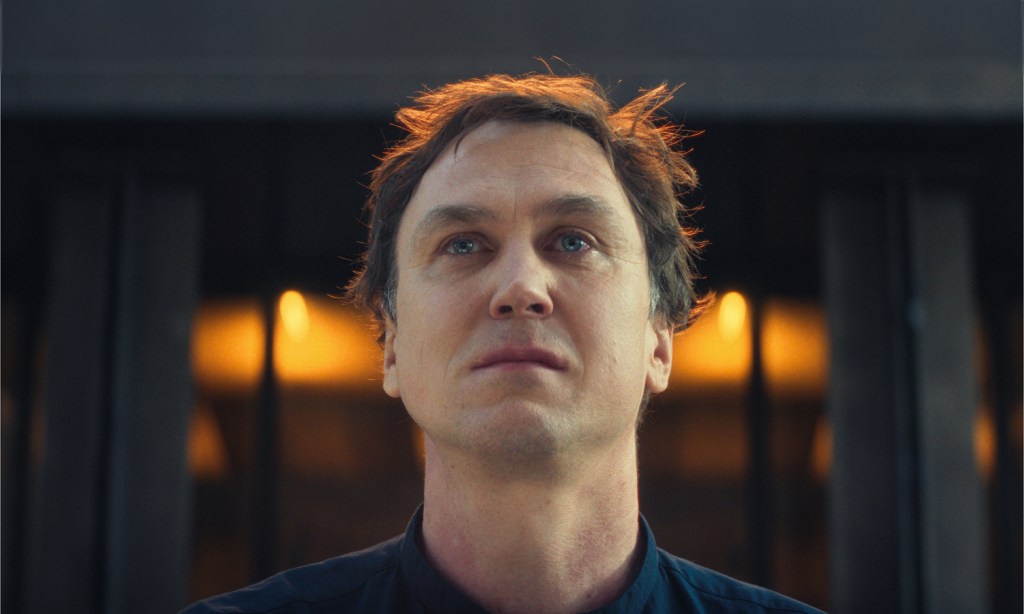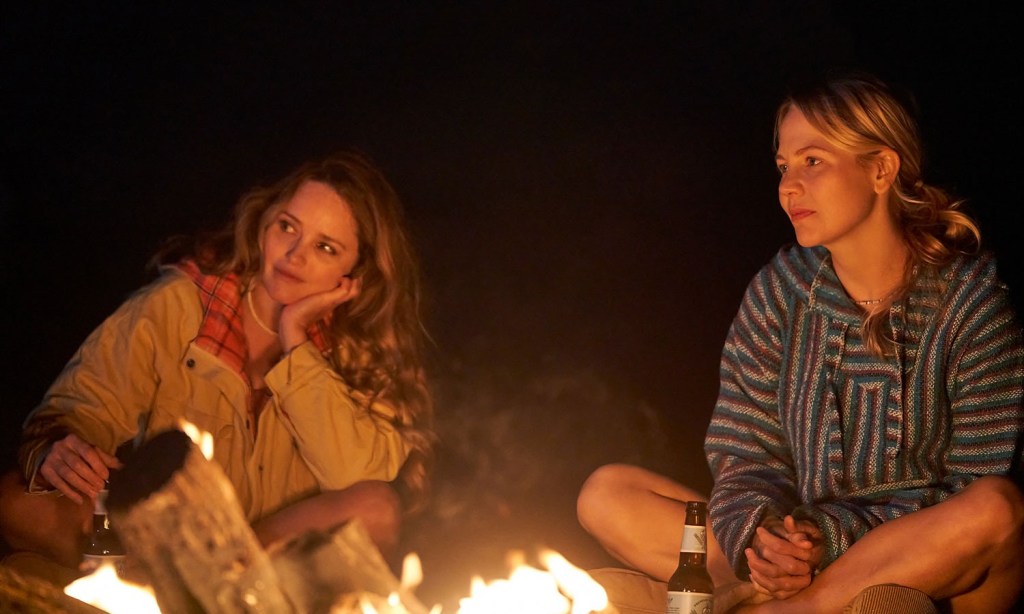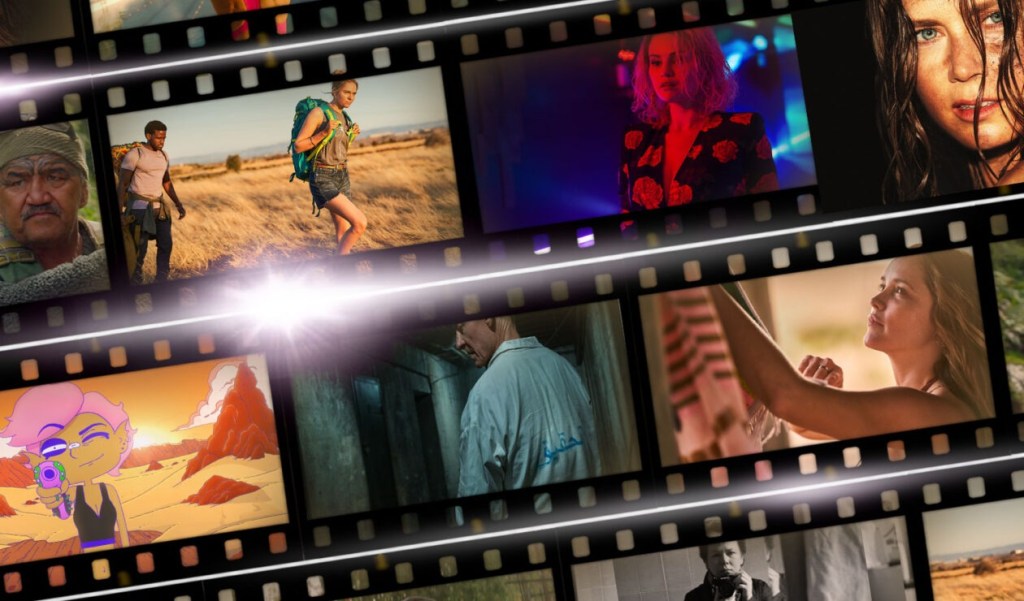Film star Lars Eidinger on Dying, kangaroos and the secret of his acting success
Celebrated German actor Lars Eidinger picks up the conductor’s baton for his role in the searing family drama Dying, a highlight of this year’s Adelaide Film Festival. He talks to InReview about the film, and how a previous visit to SA broadened his horizons.

Lars Eidinger, 48, is a formidable actor who is perhaps most famous for his audacious work with Berlin’s Schaubühne Theatre, although he also performs in movies and television series. While we are meeting at the Berlin Film Festival to discuss his role as an orchestra conductor in Matthias Glasner’s Dying, a family drama that is surprisingly full of dark humour, he also enthuses about his association with Australia.
Eidinger performed at the 2006 Adelaide Festival in a Schaubühne production of Nora (director Thomas Ostermeier’s radical take on Ibsen’s A Doll’s House) and returned in 2017 to play the lead in its reinterpretation of Shakespeare’s Richard III. In 2010, he also starred in the Schaubühne’s Hamlet during the Sydney Festival.
“There have been so many things in my life related to Australia,” Eidinger says eagerly, immediately recalling his first trip to Adelaide.
“I remember that my wife called me at four o’clock in the morning unaware of the time difference and telling me she was pregnant. [The couple have a daughter, their only child.]
“The next day I went with two friends to Kangaroo Island to explore nature and for three days we saw the horizon. If you grow up in a city like Berlin, like I did, you look out of the window and you just see walls. To see the horizon for such a long time really changed our minds.
“I remember that we were sitting at a gas station and we couldn’t stop laughing. We were like, high, you know? That was such a relief.
“Then we had an experience where we walked over a field and there were wild kangaroos. They were maybe 300 metres away and they became aware of us; their ears stood up and they ran away, moving like dinosaurs. I’d never seen something like that. We were very fascinated by their sensibility and sensitivity.”
Eidinger brings his natural inquisitiveness to his role in Dying, which explores dysfunctional family relationships and is based on Glasner’s own experience with his parents as they faced death over a prolonged period. Glasner won the best screenplay award for the film at the Berlin International Film Festival; the movie also picked up a number of other awards at the same festival and in the German Film Awards.
You might like

Director Matthias Glasner (centre) and actor Lars Eidinger at the Berlin premiere of Dying.
Dying follows three family members: famous Berlin conductor Tom (played by Eidinger), his ailing mother Lissy (Corinna Harfouch) and his sister Ellen (Lilith Stangenberg), a dental assistant who self-medicates with alcohol. Incredibly, what Glaser manages to achieve is to make the film very much about living.
“When I approached the role, not only as the conductor, I tried to prepare as little as possible and to stay open when interacting with my partners.,” Eidinger says. “My task was to play someone who is acting cold, but as I played the character I came to realise that I was rather emotional and I’d never planned for that.”
The film’s most emotionally gruelling scene is when Tom sits at a table with his mum and she tells him exactly what she thinks of him – mostly that she had never wanted him and never loved him.
“We shot that without rehearsing, and when I watched the film that scene was probably our first take, our first encounter,” Eidinger notes.
“When we were done, Corinna high-fived me. We’ve worked together many times and this was a strange gesture for her. But I understood because it was like jumping off a cliff together; we just congratulated each other for daring to do that, because we never knew what was going to happen.
“It was so exciting to be given the opportunity to try these things. This is something that I could never play if I had to prepare.”
The film’s title echoes that of the orchestral project Tom is preparing to conduct, and the music provides some of the film’s most rousing moments.
“It was funny because when we started rehearsing, Tár came out,” Eidinger recalls. “Of course, it was an issue and we watched it. The conductor who was training me asked me what I thought about Cate Blanchett in the film.
“A lot of people wrote about it, that she’s now able to conduct an orchestra, and that put a lot of pressure on me. It was difficult to do, because there are tones you have to hit – and if you miss them, everybody knows. It’s like sports. There’s an auditorium full of people who think they know how you should conduct and you feel their expectation.”
Subscribe for updates
Eidinger’s biggest reference was Greek conductor Teodor Currentzis.
“He conducts in a very free, expressive way. I’ve met him a few times and he watched my opening night of Hamlet in Greece, back in 2008. I’ve been to his concerts and I’ve watched him.”
When Tom takes to the podium at the Berlin Philharmonic for the debut of the work “Dying”, his sister starts vomiting. It’s hugely embarrassing for Tom and is not unlike Blanchett’s meltdown on the exact same spot as conductor Lydia Tár.
Eidinger knows Blanchett from performing at the Sydney Theatre Company.
“I’ve been at the Schaubühne since 1999 and we have very strong relationships with theatres all over the world,” he says. “We went to Sydney when Cate invited us. She’s a good friend of the artistic director, Thomas Ostermeier, and there was always the idea that she would perform at the Schaubühne. But it never happened.
“I first met Cate when we ran into each other in a hotel in Paris when she was there with her family. I was impressed because it was a very simple hotel. Then there was the idea to do a movie together and I met her in the Soho House in Berlin. But again, that never happened.”
Eidinger has worked a lot with Blanchett’s Tár co-star, German actress Nina Hoss, who has been his friend since acting school. They co-starred in the 2020 movie My Little Sister, where he played Hoss’s cancer-stricken famous actor brother. Eidinger has also appeared in the hit German series Babylon Berlin and the Emmy-nominated American mini-series All the Light We Cannot See.
"I’m really a frightened person, but I’m brave. And I think this is what makes it interesting to watch me"
As perhaps Germany’s most famous actor, Eidinger, also a rapper, can be tabloid fodder. His actions probably don’t help. On one occasion when he was on the Berlin Festival’s jury he got up on a table and bared his bottom.
“I was on the cover of B.Z., the biggest yellow [tabloid] press. And my ass was next to the face of George Clooney’s wife, but this was a montage; I didn’t do it. You know, this is what German journalists come up with. It was just a rock ’n’ roll gesture. It was late and I thought all the photographers had left. After that, I never did it again.”
So, he’s an eccentric?
“No, I’m not. It’s my way of dealing with my shyness. I’m really a frightened person, but I’m brave. And I think this is what makes it interesting to watch me. This is my secret. People like watching me because they see somebody dealing with his fear.”
Eidinger works extensively in international productions, mostly in English. He appeared in Tim Burton’s Dumbo and Claire Denis’s High Life, and worked with Olivier Assayas on Personal Shopper, The Clouds of Sils Maria and the mini-series Irma Vep.
“I just react to what people offer me,” he says. “I’m happy that I’m now doing a new movie with Noah Baumbach (his second after White Noise), and I’m happy to do German TV – even if some people told me to stick to theatre and to do some arthouse movies. But I try to be as open-minded as possible and I do whatever interests me.”
Dying screens at The Piccadilly on October 26 and November 3 as part of the 2024 Adelaide Film Festival, which opens on October 23.
Read more Film Festival stories here.

